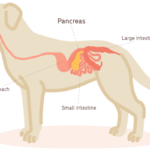Symbolic Thinking is a cognitive process that involves the use of symbols, such as words, images, or objects, to represent ideas, concepts, and other abstract entities. This form of thinking is foundational to many aspects of human cognition and communication. It enables individuals to think about things that are not immediately present, to conceptualize abstract ideas, and to engage in complex problem-solving and creative processes. Understanding Symbolic Thinking and its importance is crucial for appreciating how humans interact with the world and each other.
The Nature of Symbolic Thinking
Definition and Characteristics
Symbolic Thinking is characterized by the ability to use symbols—whether they be language, numbers, images, or objects—to represent something else. For instance, the word “tree” is a symbol that represents the physical object we know as a tree. This ability to represent one thing with another is not just limited to language; it extends to various forms of communication and thought, including art, mathematics, and even body language.
Symbols are not always straightforward or universally understood. Their meanings can vary depending on cultural context, individual experiences, and specific circumstances. This variability is what makes Symbolic Thinking both complex and powerful. It allows for flexibility in communication and thought, enabling humans to convey and understand a wide range of ideas and emotions.
Development of Symbolic Thinking in Humans
Symbolic Thinking develops in early childhood and is considered a major milestone in cognitive development. Jean Piaget, a renowned developmental psychologist, identified the emergence of Symbolic Thinking as a key stage in a child’s intellectual growth, which typically occurs around the ages of 2 to 7 years. During this period, children begin to engage in pretend play, use language more effectively, and understand that symbols can represent objects or ideas that are not physically present.
This ability continues to evolve and becomes more sophisticated as individuals grow older. Adults use Symbolic Thinking in complex ways, such as in abstract reasoning, moral judgment, and creative problem-solving. The ongoing development and refinement of this cognitive ability are essential for navigating the complexities of the modern world.
Importance of Symbolic Thinking in Human Cognition
Facilitating Communication and Language
One of the most critical roles of Symbolic Thinking is in the realm of communication. Language, perhaps the most advanced system of symbols, relies entirely on Symbolic Thinking. Words are symbols that stand for objects, actions, and ideas, allowing humans to convey thoughts and information efficiently. Without Symbolic Thinking, the intricate and precise communication that language provides would be impossible.
Moreover, Symbolic Thinking enables people to communicate about things that are not immediately present, whether they are events that occurred in the past, hypothetical situations, or abstract concepts such as love, justice, and freedom. This capacity for abstract communication is what distinguishes human language from the more limited forms of communication observed in other species.
Enhancing Problem-Solving and Creativity
Symbolic Thinking plays a pivotal role in problem-solving and creative thinking. It allows individuals to think about problems in abstract terms, to envision different possibilities, and to manipulate ideas in the mind before taking action. For example, a mathematician uses symbols to represent numbers and operations, enabling them to solve complex equations without needing to work with actual physical quantities.
In the arts, Symbolic Thinking is fundamental. Artists use symbols to convey deeper meanings, evoke emotions, and explore ideas that transcend the literal. A painting, poem, or piece of music can represent complex emotions and ideas that might be difficult to express through direct language. This symbolic representation is what gives art its power and universality.
Supporting Memory and Learning
Symbols also play a crucial role in memory and learning. By associating information with symbols, individuals can store and retrieve knowledge more effectively. Mnemonics, for instance, are a tool that leverages Symbolic Thinking to aid in memorization. By converting information into a symbolic form, such as a rhyme, acronym, or visual image, it becomes easier to remember.
In education, the use of symbols is pervasive. Teachers use diagrams, charts, and other symbolic representations to help students grasp complex concepts. These tools are essential for learning because they provide a way to visualize and organize information that might otherwise be too abstract or difficult to understand.
Contributing to Cultural and Social Development
Symbolic Thinking is also deeply intertwined with cultural and social development. Culture itself can be seen as a vast system of symbols, including language, art, religion, and customs. These symbols convey the values, beliefs, and knowledge of a society, allowing individuals to understand and participate in their culture.
Religion, for example, relies heavily on Symbolic Thinking. Religious symbols, rituals, and texts are used to represent spiritual beliefs and convey moral teachings. These symbols are powerful because they encapsulate complex and profound ideas in forms that can be easily shared and understood within a community.
In the social sphere, symbols are used to create and maintain social structures and relationships. Status symbols, for example, indicate a person’s social position, while national flags symbolize the identity and unity of a country. These symbols help individuals navigate the social world and understand their place within it.
The Role of Symbolic Thinking in Science and Technology
Abstract Reasoning and Innovation
In the fields of science and technology, Symbolic Thinking is indispensable. Scientific theories often rely on abstract symbols and models to represent complex phenomena that cannot be directly observed. For instance, in physics, equations and diagrams are used to symbolize the behavior of particles, forces, and fields.
This symbolic representation allows scientists to predict outcomes, develop new hypotheses, and innovate. Technological advancements, too, are often driven by the ability to think symbolically. Engineers and inventors use symbolic models to design and test new technologies before they are physically created.
Mathematical and Computational Thinking
Mathematics is perhaps the most clear-cut example of Symbolic Thinking in action. Mathematical symbols represent numbers, operations, relationships, and more. This symbolic system allows for the manipulation of abstract concepts in ways that would be impossible with concrete objects alone.
In the realm of computing, Symbolic Thinking is equally vital. Programming languages are symbolic systems that allow for the creation of software, which in turn powers much of modern technology. The ability to think symbolically enables programmers to write code that can perform complex tasks, solve problems, and even simulate human intelligence through artificial intelligence.
Ethical Implications and Symbolic Interpretation
The ability to interpret symbols also has significant ethical implications, particularly in science and technology. How symbols are understood can influence decisions in areas such as bioethics, environmental policy, and human rights. The symbolic representation of concepts like “life,” “nature,” and “humanity” can shape the way people approach these issues and the policies that are developed to address them.
Challenges and Limitations of Symbolic Thinking
Misinterpretation and Ambiguity
Despite its many advantages, Symbolic Thinking is not without challenges. One of the primary issues is the potential for misinterpretation. Since symbols can have different meanings in different contexts, there is always the risk that a symbol will be misunderstood. This can lead to confusion, miscommunication, and even conflict.
Ambiguity is another limitation. Some symbols are deliberately ambiguous, allowing for multiple interpretations. While this can be a strength in artistic or literary contexts, it can be problematic in situations that require precision and clarity, such as legal or scientific communication.
Over-Reliance on Symbols
Another potential issue is an over-reliance on symbols. While Symbolic Thinking is powerful, it can sometimes lead to a detachment from reality. For example, individuals might become so focused on the symbolic representation of a problem that they lose sight of the practical aspects of solving it. This can be seen in situations where complex theoretical models are developed, but they fail to address real-world issues effectively.
Additionally, over-reliance on symbols can sometimes lead to rigid thinking. When people become too attached to certain symbols or ways of thinking, they may struggle to adapt to new information or perspectives. This can hinder creativity, innovation, and problem-solving.
Conclusion
Symbolic Thinking is a fundamental aspect of human cognition that plays a crucial role in communication, problem-solving, creativity, memory, learning, and cultural development. It is the cognitive process that allows individuals to represent, manipulate, and interpret abstract concepts through symbols, which are essential for navigating the complexities of the modern world. Despite its challenges and limitations, Symbolic Thinking remains an indispensable tool for understanding and engaging with the world around us.
As society continues to evolve, the importance of Symbolic Thinking will likely grow. Advances in technology, science, and culture will continue to rely on this form of thinking, making it ever more critical for individuals to develop and refine their symbolic reasoning skills. Understanding Symbolic Thinking and its significance is not just an academic exercise; it is a key to unlocking the full potential of human intelligence and creativity.
Feel free to submit more guest posts through Links Building Servcies - Best Prices. Buy Author Account / 1$ Guest Post Here























